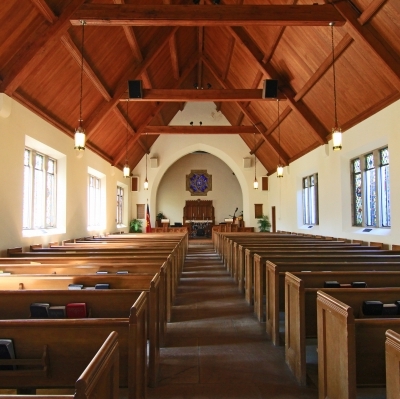Washington Case Update: Washington Court of Appeals Sides with Insurer in Dispute Over How Much a Church Was Entitled to in Compensation Under its Policy Following A Fire.
Washington Case Update: Washington Court of Appeals Sides with Insurer in Dispute Over How Much a Church Was Entitled to in Compensation Under its Policy Following A Fire From the desk of Smith Freed Eberhard:
When a structure burns down and is covered by an insurance policy, the insured is generally entitled to receive compensation for the value of the structure or compensation that would allow the insured to rebuild the structure. Although insurance policies vary, how is the amount owed to an insured after a fire determined? If costs associated with the rebuild are less than the original estimate, is the insured entitled to receive the full amount of the estimate? Read on to find out.
Case Pointer: After a fire caused significant damage to the Mt. Zion Lutheran Church in Mountlake Terrace, Washington, Mt. Zion sought coverage under its insurance policy with Church Mutual Insurance Company. The insurer accepted coverage, and agreed upon an estimated reimbursement that it would provide to Mt. Zion at the completion of the rebuild. After the rebuild was completed, the total cost was less than that of the estimate. Accordingly, the insurer paid only those amounts that were actually spent on the rebuild. Mt. Zion sued for the full amount and the insurer won summary judgment at the trial level. The Washington Court of Appeals affirmed, holding that the policy at issue did not obligate the insurer to pay any costs associated with Mt. Zion’s rebuild that were not actually expended and necessary.
Mount Zion Lutheran Church v. Church Mutual Insurance Company, No. 78107-3-I (Wash. Ct. App. Mar. 18, 2019).
During the night of May 7, 2014, a devastating two-alarm fire broke out and caused extensive damage to the Mt. Zion Lutheran Church in Mountlake Terrace, Washington (“Mt. Zion”). Mt. Zion suffered nearly $300,000 in damage and sustained smoke damage throughout the sanctuary. Mt. Zion maintained an insurance policy (the “Policy”) with Church Mutual Insurance Company (“Church Mutual”) that provided fire coverage. Under the terms of the Policy, Mt. Zion was entitled to collect the Actual Cash Value (“ACV”) of the covered property. If it chose to rebuild, it was entitled to file a claim for repair or replacement costs that exceeded the ACV, the Replacement Cost Valuation (“RCV”).
Mt. Zion and Church Mutual obtained two estimates related to the rebuild of the structure. First, it was determined that the ACV of the church was nearly $600,000, which Church Mutual immediately provided to Mt. Zion. Second, Mt. Zion and Church Mutual obtained an estimate that the total cost of replicating the church (i.e., the RCV), would cost $730,000. Under the terms of the Policy, Church Mutual was to withhold the difference between the ACV and RCV until Mt. Zion completed the construction of its church. Further, under the terms of the Policy, Church Mutual would pay only those costs that were actually expended and those costs that were found to be necessary to replicate the original structure.
Mt. Zion completed its rebuild in 2015. An adjuster employed by Church Mutual performed a routine post-construction inspection on October 28, 2015, finding that several beams—originally planned to be replaced—had instead been repaired at a significantly lower cost. Additionally, Church Mutual found that Mt. Zion had, instead of replicating, upgraded several parts of the church.
Church Mutual declined to pay the difference between the cost of repairing and replacing the beams and refused to pay the cost of Mt. Zion’s “substituted expenditures” related to the various upgrades. Mt. Zion filed a lawsuit, alleging breach of contract and claims under the Washington Consumer Protection Act (“CPA”) and the Washington Insurance Fair Conduct Act (“IFCA”). Mt. Zion moved the trial court to make a legal ruling that it was entitled under the Policy to the full amount of the RCV, regardless of its departures from the original estimate or lack of replacement beams. The trial court denied Mt. Zion’s motion, and Mt. Zion appealed.
On appeal, the Washington Court of Appeals sought to answer a single question: whether Mt. Zion was entitled to receive the full RCV calculated by Church Mutual under the Policy, despite Mt. Zion’s departures from the estimate due to repairing, rather than replacing the beams. As usual, the Court began by interpreting the Policy. The relevant provisions provided that (1) Church Mutual would “not pay on a Replacement Cost Basis for any loss or damage…[u]ntil the lost or damaged property is actually repaired or replaced…”; and (2) that Church Mutual would “not pay more for loss or damage on a Replacement Cost basis than the least of…[t]he cost to replace ‘on the same premises’ the lost or damaged property…of comparable material and quality; and used for the same purpose.”
Mt. Zion argued that the beams that were repaired, rather than replaced, could not be isolated from the remainder of the expenditures. Accordingly, it argued, Church Mutual breached its contract when it considered these costs separately. The Court disagreed, finding that it was a reasonable construction of the Policy to consider the beams separately and, because Church Mutual was not required to pay until the beams were actually repaired or replaced, it was not required to pay the difference between the amounts.
In a separate argument, Mt. Zion encouraged the Court to adopt a “functional similarity” test to determine whether its various upgrades should have been paid. However, the Court was not swayed. It found that the plain language of the Policy did not impose an obligation on Church Mutual to pay for Mount Zion’s remodeling choices just because the remodeled space serves the same function as the old. Instead, Church Mutual was entitled to determine whether the amount expended was actually necessary to repair or replace lost or damaged property. Because the upgrades were not necessary to repair/replace, Mt. Zion was not entitled to compensation for the upgrades.
In conclusion, the Court found that the terms of the Policy controlled. Under the terms of the Policy, Church Mutual had the right to “evaluate each line item of Mount Zion’s insurance claim and to determine (1) whether there was lost or damaged property; and (2) whether the amount spent by Mount Zion was necessary to repair or replace that lost or damaged property.” Accordingly, Church Mutual was not required to pay Mt. Zion for replacement of the beams when, instead, they were repaired. Additionally, Church Mutual was not required to pay for the various upgrades Mt. Zion completed during its remodel, because those expended costs were not necessary to repair or replace lost or damaged property.
View full opinion at: https://www.courts.wa.gov/opinions/pdf/781073orderandopin.pdf
To view the latest Oregon Case Law Update: Oregon Supreme Court Determines that the Noneconomic Damages Cap Does Not Apply in Any Case Involving Workers’ Compensation, please click here.

















